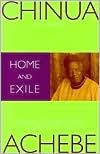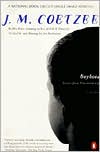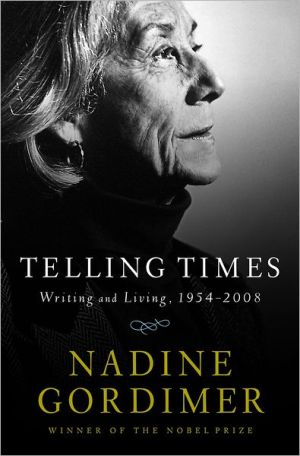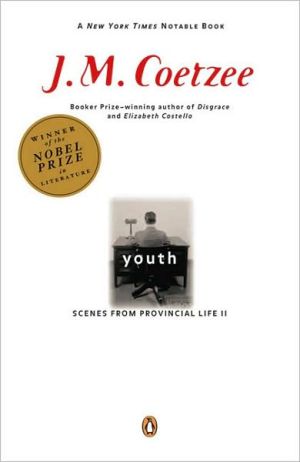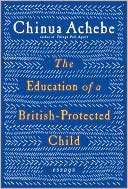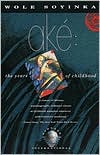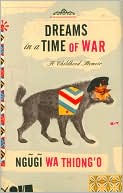Home and Exile
More personally revealing than anything Achebe has written, Home and Exile-the great Nigerian novelist's first book in more than ten years-is a major statement on the importance of stories as real sources of power, especially for those whose stories have traditionally been told by outsiders.\ In three elegant essays, Achebe seeks to rescue African culture from narratives written about it by Europeans. Looking through the prism of his experiences as a student in English schools in Nigeria, he...
Search in google:
More personally revealing than anything Achebe has written, Home and Exile-the great Nigerian novelist's first book in more than ten years-is a major statement on the importance of stories as real sources of power, especially for those whose stories have traditionally been told by outsiders.In three elegant essays, Achebe seeks to rescue African culture from narratives written about it by Europeans. Looking through the prism of his experiences as a student in English schools in Nigeria, he provides devastating examples of European cultural imperialism. He examines the impact that his novel Things Fall Apart had on efforts to reclaim Africa's story. And he argues for the importance of writing and living the African experience because, he believes, Africa needs stories told by Africans. Publishers Weekly Though it is labeled autobiographical by the publisher, this small book, which originated as three lectures given at Harvard University in December 1998, barely covers the rudiments of Achebe's long and productive life (he is now 70). But the great Nigerian novelist and poet, a master of compression, needs little more than 100 pages to tell the dramatic story of the emergence of a native African literature; in the 1950s, students at English-dominated universities started speaking out against the long European tradition of depicting Africans as "a people of beastly living, without a God, laws, religion," which dates back to Captain John Lok's voyage to West Africa in 1561. "Until the lions produce their own historian," says Achebe, quoting an African proverb of uncertain provenance, "the story of the hunt will glorify only the hunter." With characteristic ease and economy, he traces the long African tradition of asserting the worth of the individual, born of Igbo myths that described each community as created separately with its own original ancestor. This notion of individuality, which made the Africans vulnerable to the Atlantic slave traders and to colonial occupation, is the same quality that defined the native African fiction and poetry that emerged in the 1950s, at the time of independence for many African nations. This slim volume--told in Achebe's subtle, witty and gracious style--is one of those small gems of literary and historical analysis that readers will treasure and reread over the years. (June) Copyright 2000 Cahners Business Information.\|
\ From the Publisher"A master narrative."\ —The New York Times Book Review\ "Spare and moving... The many admirers of Achebe's fiction will find here a rare opportunity to glimpse a bit of the man behind the monumental novels."\ —Chicago Tribune\ "Soulful... A book that anyone concerned with advancing social justice and human dignity should read.\ —The Seattle Times\ \ \ \ \ \ \ Publishers Weekly - Publisher's Weekly\ Though it is labeled autobiographical by the publisher, this small book, which originated as three lectures given at Harvard University in December 1998, barely covers the rudiments of Achebe's long and productive life (he is now 70). But the great Nigerian novelist and poet, a master of compression, needs little more than 100 pages to tell the dramatic story of the emergence of a native African literature; in the 1950s, students at English-dominated universities started speaking out against the long European tradition of depicting Africans as "a people of beastly living, without a God, laws, religion," which dates back to Captain John Lok's voyage to West Africa in 1561. "Until the lions produce their own historian," says Achebe, quoting an African proverb of uncertain provenance, "the story of the hunt will glorify only the hunter." With characteristic ease and economy, he traces the long African tradition of asserting the worth of the individual, born of Igbo myths that described each community as created separately with its own original ancestor. This notion of individuality, which made the Africans vulnerable to the Atlantic slave traders and to colonial occupation, is the same quality that defined the native African fiction and poetry that emerged in the 1950s, at the time of independence for many African nations. This slim volume--told in Achebe's subtle, witty and gracious style--is one of those small gems of literary and historical analysis that readers will treasure and reread over the years. (June) Copyright 2000 Cahners Business Information.\|\ \ \ Library JournalTo love Achebe is to love Africa and language. As he is Africa's most prominent novelist and critic, this book's 100-plus pages don't seem ample enough to chronicle the development of such an extraordinary intellectual and literary talent. Furthermore, because of his lyrical prose and accessible ideas, at the end one is left desiring more of Achebe's ruminations (both serious and humorous) on empire, postcolonialism, Western writers (e.g., Joseph Conrad, Graham Greene, and Elspeth Huxley) on Africa, universal culture, and expatriation and exile. Reading Achebe is to know Africa in a way that few are able to tell. Achebe weaves anecdotes from his childhood, schooling, and writing life with African proverbs and literary and political theory to contribute beautifully to the "process of `re-storying' peoples who had been knocked silent by the trauma of all kinds of dispossession." His passion and truth are sensuous and contagious, warming one's soul. Highly recommended for all libraries.--Sherri Barnes, Univ. of California Lib., Santa Barbara Copyright 2000 Cahners Business Information.\\\ \ \ \ \ Publishers WeeklyOne of those small gems of literary and historical analysis that readers will treasure and reread over the years.\ \ \ \ \ James NorthAchebe's central purpose, advanced with passionate eloquence, is simple: to show how the West continues to insist on a view of Africa that is dark, negative and dehumanizing...Chinua Achebe's influence should go on and on, outliving petty African warlords and small-minded Western writers alike, teaching and reminding that all humankind is one.\ —The Nation\ \ \ \ \ Christina ChoAfter the trauma of becoming, in essence, an exile in his own land, Achebe celebrates this reclamation of one's home by offering his own Nigeria, in the form of memories, family anecdotes, parables of the Igbo people -- stories constituting a master narrative at once intimately embedded in the history and heritage of a continent and too intensely personal to be reduced for the sake of political stratagems. \ —The New York Times Book Review\ \ \ \ \ Kirkus ReviewsBookish lectures in which the Nigerian Nobel Prize-winning novelist reflects on his life and work. Achebe (Hopes and Impediments, 1989) is the renowned author of Things Fall Apart, the most widely read novel ever to come out of Africa. Here, in three lectures given in 1998 at Harvard, Achebe draws on his recollections of childhood and youth to describe the origins of that 1958 book, as well as of the Nigerian independence movement that was reaching its full flowering in the late '50s. At several points Achebe recalls an undergraduate class in which he and his fellow students read Joyce Cary's novel Mister Johnson, which was set in Nigeria and full of white-man's-burden tropes; when one of those students rose and informed the teacher that "the only moment he had enjoyed in the entire book was when the Nigerian hero, Johnson, was shot to death by his British master," Achebe realized that he was witnessing the birth of a "landmark rebellion" (one in which Nigerians would press for their own sense of national identity) and of a literature destined to be filled with better heroes than the "embarrassing nitwit" Johnson. Achebe's tour of English literature highlights the outrageous interpretations of African culture that much of it contains (in books that depicted Africans as, in the words of one white author, "a people of beastly living, without a God, laws, religion"). Plainly as tired of multiculturalist appropriations of African cultures as of imperialist ones, Achebe urges his listeners to seek authentic voices, ones outside the confines of the imagined "universal civilization" of Europe and North America. A welcome bookforAchebe's many admirers, as well as for all students of contemporary African cultures.. . .\ \
